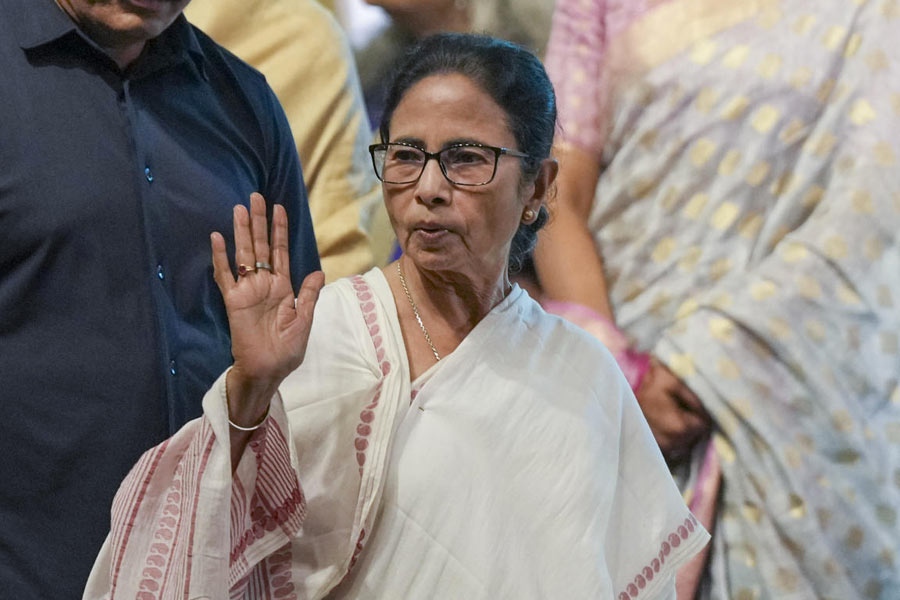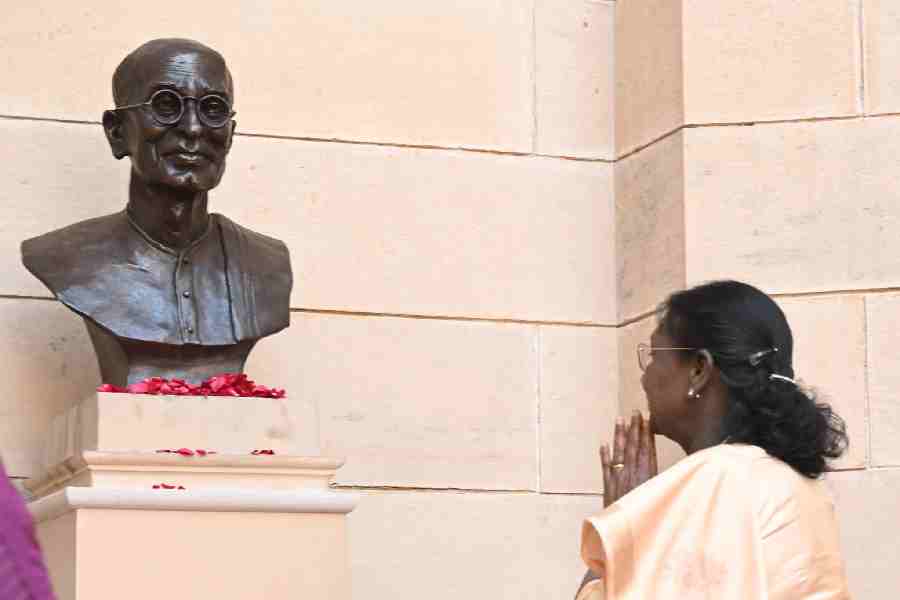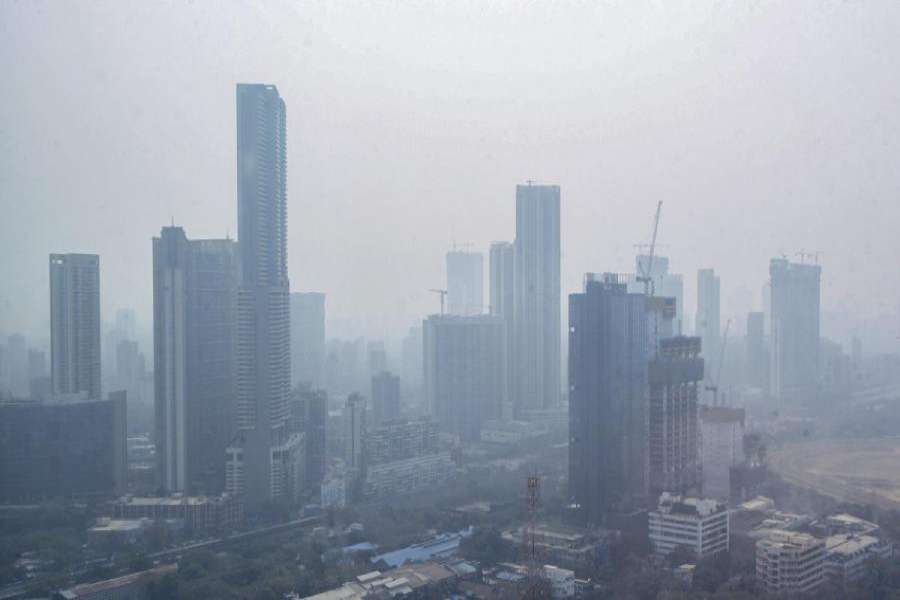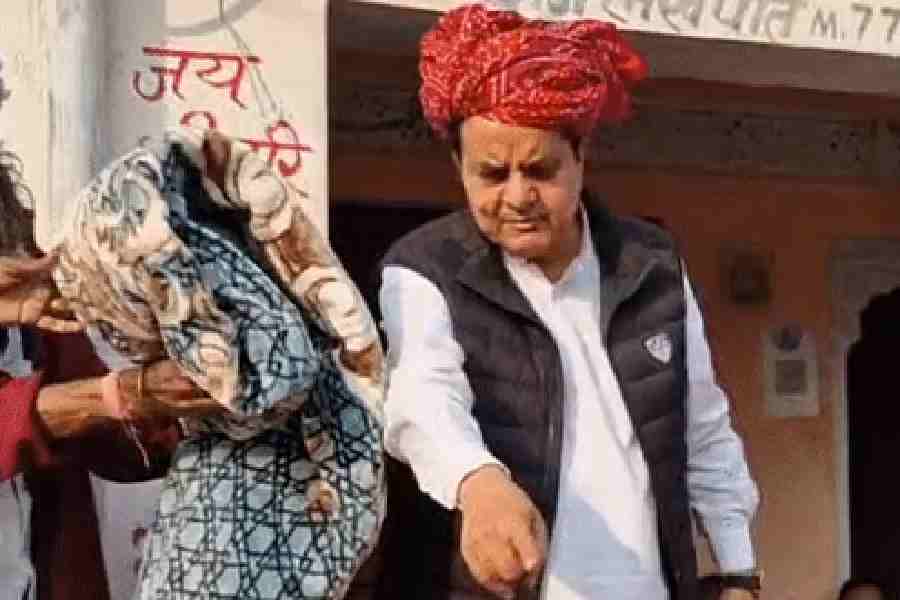Sir — Two days from now, the ghosts and ghouls of Bengal will crawl out of their various hideouts. Bhoot Chaturdashi will see people lighting lamps and eating leafy greens to ward off evil spirits. But few of the diverse spirits that inhabit the state are malevolent. Take Shiji and Guji, who apparently climb water pipes to tell stories of adventures at sea to human children or the mechho bhoot whose only desire is a piece of fish. Our literature and cinema are full of helpful ghosts; take the bhooter raja from Goopy Gyne Bagha Byne. The idea that anything supernatural is scary does not hold true for us.
Ranen Sanyal,
Kalyani
Stormy weather
Sir — The editorial, “Troubled isle” (Oct 31), was insightful. The political unrest in the island nation of Sri Lanka has made India uncomfortable. More so since Mahinda Rajapaksa is poised to take over the prime minister’s chair. The pro-China stance of Rajapaksa is well-known. Significantly, the reasons that were cited for sacking Ranil Wickremesinghe, who came to power in 2015, seem frivolous. While this is the internal matter of that country, India cannot be a mute spectator to such undemocratic developments in a neighbouring country. Activities in Sri Lanka under
Rajapaksa could pose a threat to India’s territorial integrity. The editorial rightly pointed out that New Delhi must quietly move the diplomatic wheels to foil China’s plans of fishing in troubled waters.
T.K. Nandanan,
Kochi
Sir — The political developments in Sri Lanka are cause for concern. The sacking of Ranil Wickremesinghe by the president, Maithripala Sirisena, is unconstitutional and amounts to a murder of democratic principles. An elected government which commanded a majority in the House has been removed to meet devious political ends. This becomes more obvious when one considers the fact that Wickremesinghe has so far been denied the opportunity to prove his majority on the floor of the House.
Given the constantly changing nature of the relationship between Sirisena and Wickremesinghe, it is obvious that what is going on is nothing but a political game. The suspension of Parliament was meant to facilitate Mahinda Rajapaksa’s ascension, who will need time to gather the required support from other members of parliament.
Given Rajapaksa’s ties with China and the leaning towards China of another neighbouring prime minister, Imran Khan, India should be doubly cautious.
N.R. Ramachandran,
Chennai
Sir — What has hit our neighbour, Sri Lanka, is the political equivalent of an earthquake. It has brought to an end the tenure of the coalition government formed by, among others, the parties of Maithripala Sirisena and Ranil Wickremesinghe. The alliance had promised to combat corruption and financial irregularities. Sirisena, who was a minister under the previous Mahinda Rajapaksa regime, broke away to contest the presidential elections. He then formed an alliance with Wickremesinghe before making a dramatic volte-face. This shows that there are no permanent friends in politics.
India, given its proximity to the island nation and the strategic position of the latter in the Indian Ocean region, can only hope that order will emerge out of chaos and Sri Lanka will not be plunged into anarchy.
J. Akshay,
Bangalore
Sir — Sri Lanka is in a state of flux. Although the unfolding events in the island nation are strictly internal, India can ill-afford to lose sight of the ramifications of unrest in a close neighbour. India has to maintain a tricky balance while keeping in mind the past bunglings that had led to the assassination of a former Indian prime minister.
Maithripala Sirisena may say that constitutional imperatives prompted his decision to sack Ranil Wickremesinghe and make room for Mahinda Rajapaksa, but he is not fooling anybody. It is also doubtful whether Wickremesinghe will take things lying down. Uncertainty thus looms large on the countenance of the subcontinent.
P.B. Saha,
Calcutta










